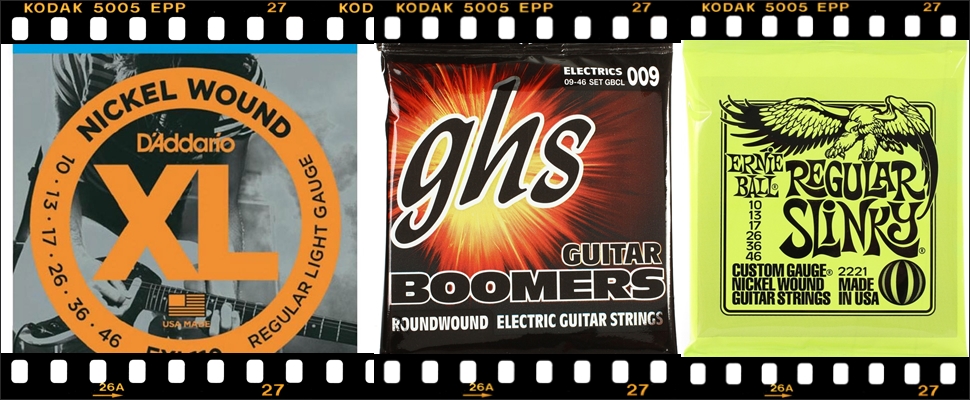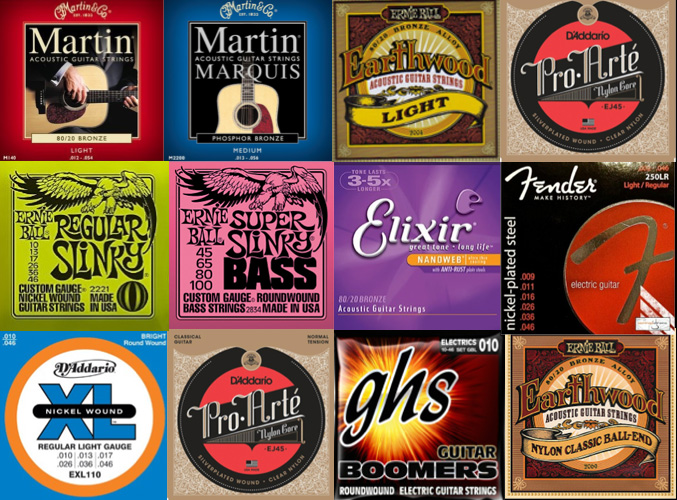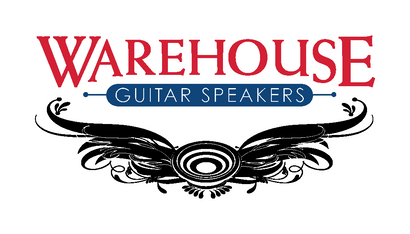Your Cart is Empty
NOW FREE SHIPPING TO 48 CONTIGUOUS UNITED STATES ON ALL ORDERS!!!
Which Strings are best & What Should I Buy For my electric guitar
by vaughn skow January 23, 2018 4 min read
Howdy tone seeking buddies! This will be an important blog to many of you, especially if you are still a little uncertain of just what exactly the plethera of string options really means where it counts ,,, on your guitar, in your hands, and through your rig! Now, you could do what I did and spend decades trying EVERYTHING that's out there, but I wouldn't recommend it; life's too short, plus it's expensive!

Okay, first let's talk BRANDS. As many of you may of you have heard, there are only a handful of companies out there that actually MAKE about 90% of the strings available for purchase, and they re-brand them for the other companies. I'd try to give you a concise list, but as of this writing (January 2018), that number is in massive flux. There are new small manufacturers coming online like STRINGJOY, and long time manufacturers, like Gibson and Fender, that have thrown in the towel and are now outsourcing their string brands. For this reason, I don't find the "Brand" of strings as important as other factors. I will, however, list the brands that I have consistently had good experiences with; but I MUST point out that I am not talking TONE here, the factors that effect TONE will be discussed in a moment, what I'm talking about is 1) consistency, 2) secure and dependable ball ends that don't unravel or break, 3) no unusual levels of string breakage, and 4) acceptable longevity, without excessive susceptibility to corrosion. With regard to these factors, here are the THREE brands I have came to TRUST in my four decades of tone-seeking: (all of whom actually DO make their own strings)
- D'Addario - Currently my #1 choice in electric strings
- GHS - Never let me down
- Ernie Ball - Not my #1 pick, but never a BAD choice

Now an easy one: String Gauge (size):No doubt you've heard about Stevie Ray Vaughan's use of stupid-big strings ... or maybe Billy Gibbon's use of stupidly small strings; both claim/claimed they had excellent reasons to believe their method was the best ... so what the heck, right? Let's set the record straight right here and now: one size does NOT fit all there is no string size that's right for EVERYBODY! My suggestion is to go with what feels best to YOU, seriously, that's the only way you'll play your best, right? Okay, there is a little more to it, and here are the must-know bullet points to string size:
- Fat strings work best with big frets! Again I reference SRV, who used huge frets with his huge strings.
- Skinny Strings work best with small frets. If you were to put tiny strings on a Strat with huge frets, you'd never play in tune!
- Fat strings work best with single-coil/lower output pickups. All that physical movement really helps fatten those pickups tone.
- Skinny strings work best with dual-coil/higher output pickups. Big strings just muddy up the tone.
So, here are my general recommendations:
- Typical Strat Player: The most common choices of standard light (.010's) and extra-light (.009's) gauge are almost always the best choice.
- Typical Tel Player: Almost ALL the Nashville guys play standard light gauge (.010's) strings ... you should too.
- Typical Les Paul Player: Lighter works, maybe not Billy Gibbons light (.008), but rather extra-light .009 gauge feels, and sounds great.
How about MATERIAL? Okay, again this is not to difficult. The most standard composition of electric guitar strings is plain steel non-wound strings (typically the three high strings) and a nickle plated steel wrap on the wound string (usually the three low strings). And, yep, I have found this standard to be the best for 90% of players and situations. Pure nickle wrap produces a mellower tone, and heavy metals like stainless steel wraps are brighter. Personally, I've never encountered "coated" ELECTRICstrings that made me want to switch to them, they just get too gunky on a sweaty stage and don't really provide any longer life. (Acoustic strings are another matter altogether!)
Here is the summary:
- Standard nickle plated steel wrapped strings: Sweet, bright, thick, decent longevity, inexpensive. Perfection!
- Pure nickle wrapped strings: Perfect for Jazz / mellow music styles, or overly bright guitars, but that's it!
- Stainless Steel wrapped strings: Unless you have stainless steel FRETS, don't use these; they will wear out your (softer) frets in a hurry, plus they sound brittle, sterile, lifeless, and ... well ... bad.
Lastly, the esoteric stuff: Personally, I'd like to call this "marketing BS"! Okay, truth: I haven't found a single golly-gee innovation that was worth a plug nickle when it comes to ELECTRIC guitar strings. I'll avoid the urge to get up on my soapbox and go on, and just give you the quickie points:
- Unusual shaped core wire: (ie: hex core) They feel slightly stiffer, break slightly easier, and don't sound any different, avoid.
- Coated electric strings: see above ... avoid!
- Unusual wrap styles: (ie: Helix) Holy crap, feel yucky, sound awful ,,, avoid like the plague!
- Flat wound strings: If you you want to sound like Chet Adkins in 1957 go for it, otherwise avoid ... same goes for semi-flat wound.
- Balanced Tension sets: These basically are just a slightly different mix of gauges; if you like the feel, go for it.
- Unusually hard metals: See above. Weather it's stainless steel, titanium, chrome, or so on ... I have despised them all, plus I had a buddy run Stainless Steels on his Tele and grooved the frets beyond being playable in just a few gigs. Avoid!!!
-
"Boutique" strings by micro manufacturers: I LOVE boutique products, but sorry ... guitar strings are the one (maybe the only) product where I see CONSISTENCY as the most important single quality ... and sadly a well tuned CNC machine can wrap mile after mile of wire waaaaay more consistent than a boutique builder.
There ya have it ... my 40-yrs or so of string experience boiled down to one small blog! Feel free to disagree, and feel free to voice those feelings here as a comment. NEXT week we'll have the same discussion ... but on acoustic strings. It'll be AWESOME :-)
email Vaughn About Vaughn Skow

Leave a comment
Comments will be approved before showing up.
